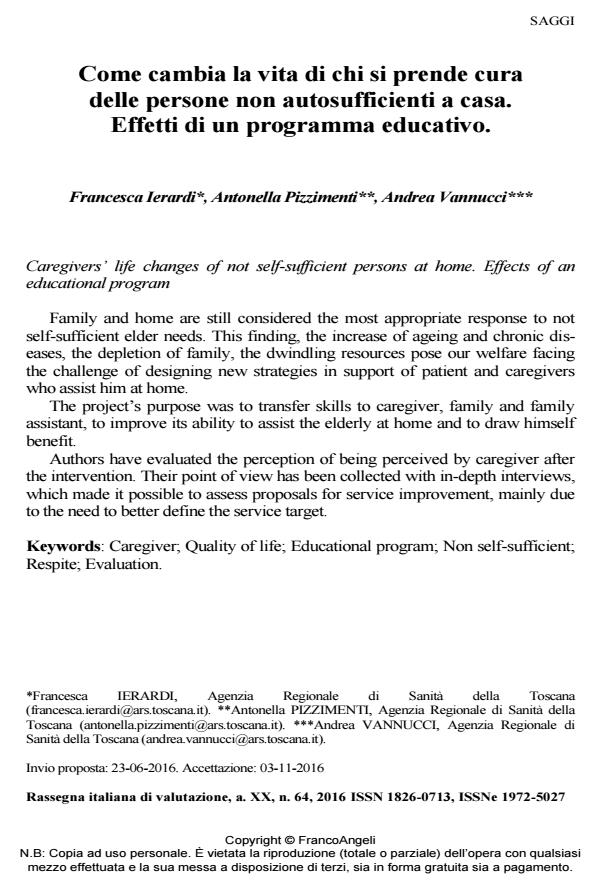Caregivers' life changes of not self-sufficient persons at home. Effects of an educational program.
Journal title RIV Rassegna Italiana di Valutazione
Author/s Francesca Ierardi, Antonella Pizzimenti, Andrea Vannucci
Publishing Year 2017 Issue 2016/64
Language Italian Pages 17 P. 95-111 File size 1024 KB
DOI 10.3280/RIV2016-064006
DOI is like a bar code for intellectual property: to have more infomation
click here
Below, you can see the article first page
If you want to buy this article in PDF format, you can do it, following the instructions to buy download credits

FrancoAngeli is member of Publishers International Linking Association, Inc (PILA), a not-for-profit association which run the CrossRef service enabling links to and from online scholarly content.
Family and home are still considered the most appropriate response to not self-sufficient elder needs. This finding, the increase of ageing and chronic diseases, the depletion of family, the dwindling resources pose our welfare facing the challenge of designing new strategies in support of patient and caregivers who assist him at home. The project’s purpose was to transfer skills to caregiver, family and family assistant, to improve its ability to assist the elderly at home and to draw himself benefit. Authors have evaluated the perception of being perceived by caregiver after the intervention. Their point of view has been collected with in-depth interviews, which made it possible to assess proposals for service improvement, mainly due to the need to better define the service target.
Keywords: caregiver; quality of life; educational program; non self-sufficient;respite; evaluation
Francesca Ierardi, Antonella Pizzimenti, Andrea Vannucci, Come cambia la vita di chi si prende cura delle persone non autosufficienti a casa. Effetti di un programma educativo. in "RIV Rassegna Italiana di Valutazione" 64/2016, pp 95-111, DOI: 10.3280/RIV2016-064006